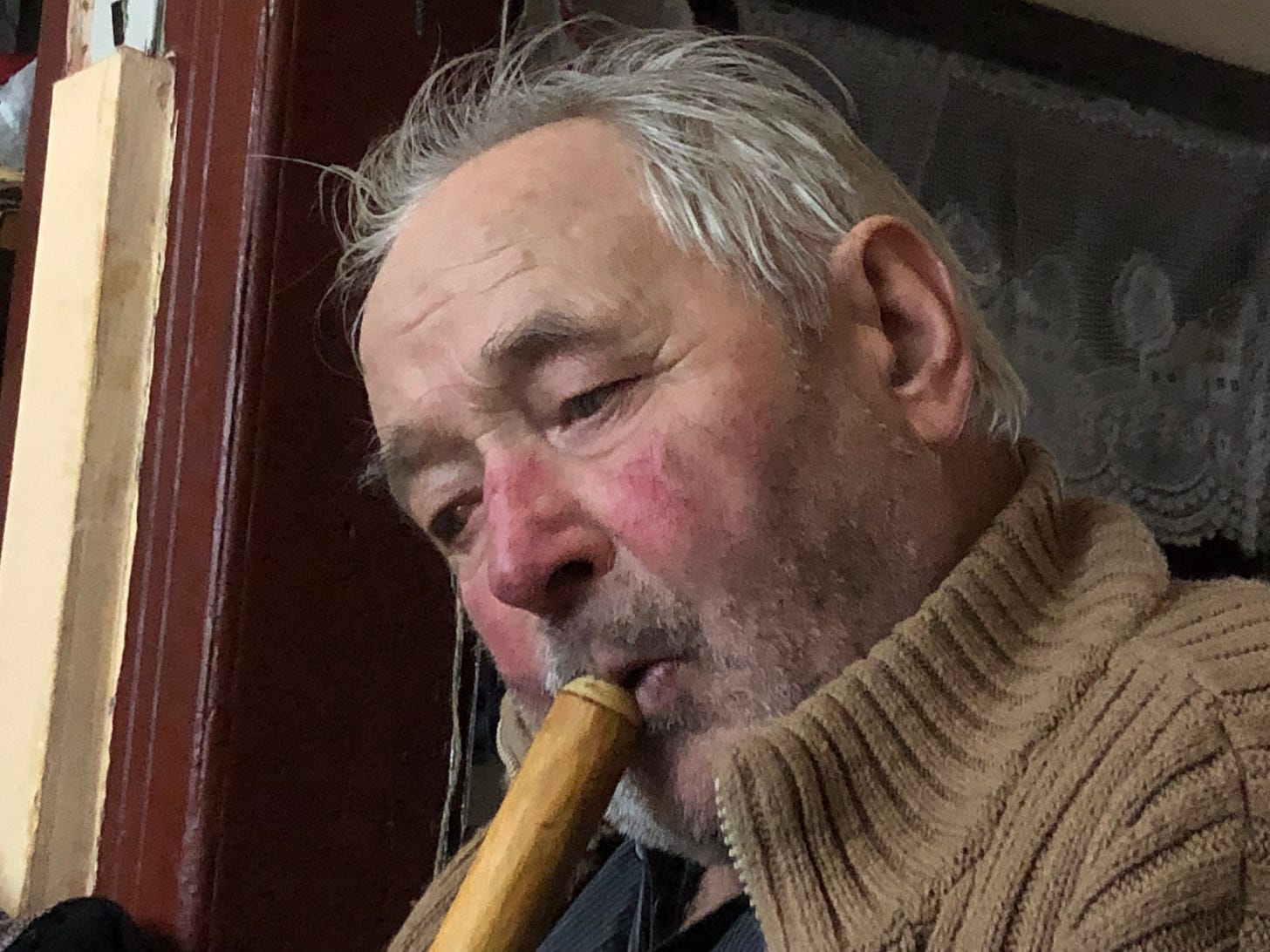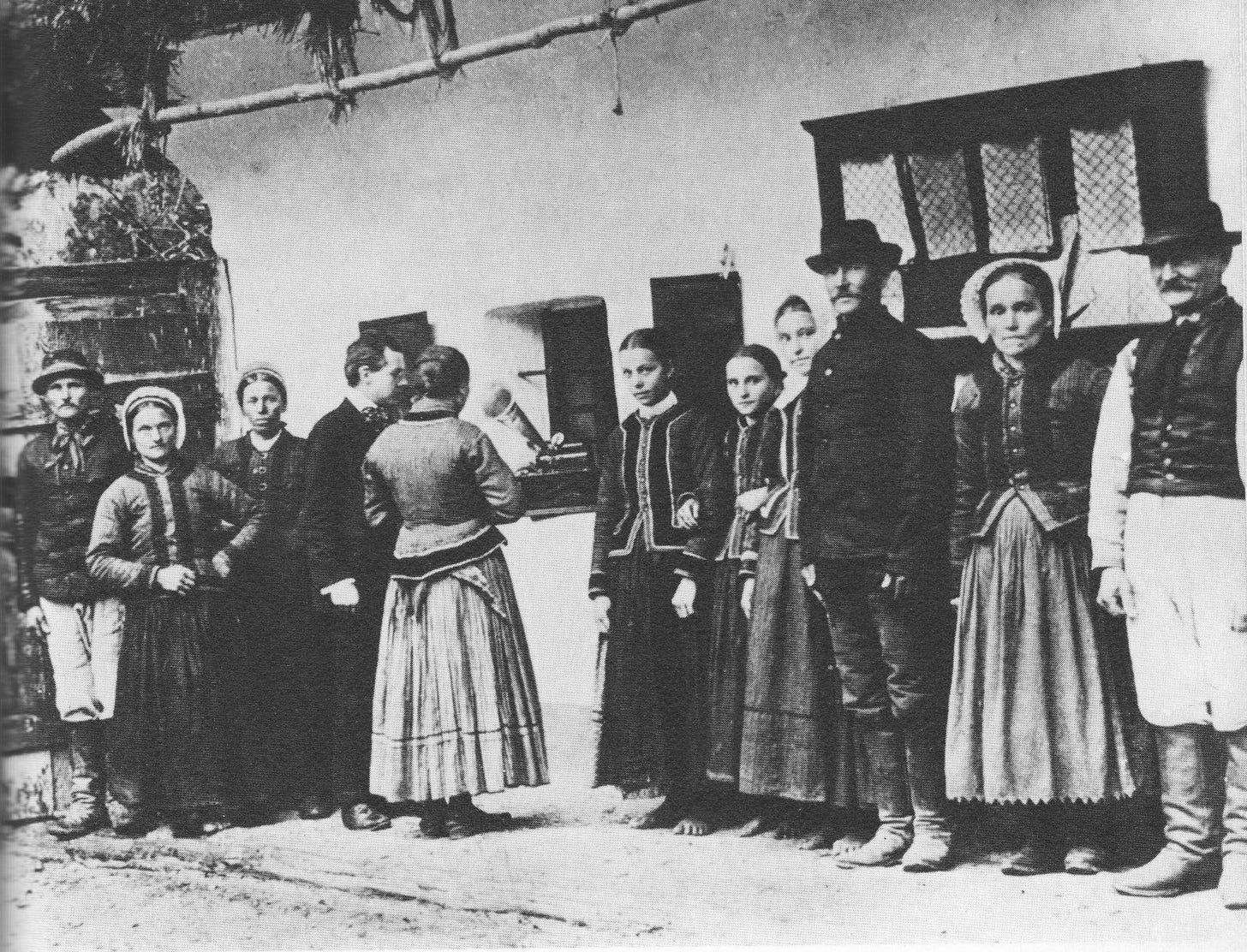As the people of Romania go to the polls this weekend, I thought it might be useful to stand back from the politics and look at the way cultures overlap, influence and enrich one another. Since the 1996 publication of Samuel Huntington’s Clash of Civilisations, though not necessarily because of it, the perception has been growing that we can no longer live together with people who are different from us. The work, ethnomusical research, and views of the Hungarian composer Béla Bartók, are a good example of resistance to earlier versions of that gloomy idea. Bartók was intrigued not only by the beauty and authenticity of the melodies he heard in the villages and remote hamlets he travelled through, but by the way musicians from other villages adapted those melodies and lyrics. Bartók opposed the Nazis, refused to play in Germany after Hitler came to power, and emigrated from Hungary to the United States in 1940. Apart from the music of Hungary, Slovakia and Romania, he also collected music in Algeria and Turkey. He died in New York in 1945, aged 64. I attended his reburial in Budapest in July 1988.
Here’s an extract from my recently published book Walking Europe's Last Wilderness, with thanks to Simon Broughton, for a correction and additional details.
And special thanks to Feri Ségercz, an accomplished maker and player of all manner of flutes, from the Szeklerland, who drove me through the Upper Mureș valley with his dog Bonifác in January 2022, in search of musicians who still know the old tunes.
Ion Covrig, Idicel, January 2022
Three months before the First World War, in April 1914, the Hungarian composer Béla Bartók set out with his wife Márta through Transylvania on a trip to collect folk melodies. It would be Bartók’s last chance to tap the musical genius of a village world about to be turned upside down and lost forever.
His month-long trip through the valley of the Upper Mureș was particularly fruitful. Until then, he had mostly collected melodies in majority ethnic Hungarian or Romanian areas. The beauty of the Upper Mureș was the intermixing of the musical styles of the two peoples and the impact of music from Moldova and Bukovina, drifting across the valleys. A perfect setting for inter-ethnic musical exchange and tolerance. It was also the region which had sparked his original interest in folk music. In July 1904, while visiting friends in what is now Slovakia, Bartók heard Lidi Dósa, a maid originally from Chibed/ Kibéd in the Mureș valley singing.
Lidi Dósa, aged 18
He recorded and transcribed eight of her songs. Astonished by the melodies, he set off to find out where they came from. One of the villages he visited in April 1914 was Idicel.
It has stopped snowing by the time we arrive there, but the drifts are so deep that we leave the car as far up the hillside as it will safely go, then walk the last half hour, Bonifác leaping ahead through the snow.
Ion Covrig, a shepherd and musician in his early eighties, lives in the last house, at the end of the track. He serves plum brandy as a welcome drink. Except that it’s half-plum and half-pear; he apologises – a bear ate half the plums from his trees last September. It tastes just as good. Ion has a craggy round face and deep blue eyes, and looks at least ten years younger than his age.
A small chicken flutters round our feet. ‘It was a bit poorly, so we brought it inside … then it got used to the warmth, so we couldn’t turn it out again,’ his wife explains.
She serves plates of steaming polenta, topped with home-made sheep’s cheese and sour cream, and sausages for the meat eaters. This is washed down with more brandy and the juice of red cabbage, a delicious, salty leftover from the fermentation process.
Ion lifts a kaval to his lips. The wood is dark with age, the cracks in it repaired with what looks like fine muslin, but turns out to be pig’s bladder. He plays a shepherd’s tune designed to carry far over the hillsides and draw the sheep back to the enclosure at dusk, when the bears and wolves begin to prowl. Then a round dance, devised to get the boys to their feet and the girls into their arms. He pauses after only two tunes and hands over to Feri, dissatisfied with his playing. One of his teeth fell out recently, he apologises, and the side of his mouth hurts.
They have five children, including a daughter who lives in England. I ask how she copes with the English rain, and get a novel answer. She likes it, her mother says – it’s warm! How cold the rain must be sometimes, by contrast, up here in the mountains above the Mureș! She even has a boss who is Chinese – or possibly African, her mother can’t quite remember. She and her family were home over Christmas for a few weeks, and have only just gone back.
Feri Ségercz, playing for his dinner.
The wind whistles impatiently at the window, and the cat plays with the chicken on the kitchen floor. We leave reluctantly, weighed down with big plastic bottles of milk from their cow, and stride through the snow in search of the car.
"Peasant music, in the strict sense of the word, must be regarded as a natural phenomenon…” wrote Bartók. “…the forms in which it manifests itself are due to the instinctive transforming power of a community entirely devoid of erudition (...) Correspondingly it has in its individual parts an absolute artistic perfection, a perfection in miniature forms which - one might say - is equal to the perfection of a musical masterpiece of the largest proportions. ”
Béla Bartók using a phonograph to record Slovak folk songs, Dražovce/ Zobordarázs
‘What can be the reason for this wealth? … Comparison of the folk music of these peoples made it clear that there was a continuous give and take of melodies, a constant crossing and re-crossing which had persisted through centuries…’
There are many versions of the song Piros alma/ Red apple, which Lidi Dósa first sang to Bartók. Here’s a beautiful version I found by Andrea Gerák, in the link:
Piros alma leesett a sárba,
Ki felveszi, nem veszi hiába,
Ki felveszi, nem veszi hiába.
Én felveszem, kimosom a sárból,
Elbúcsúzom a régi babámtól
A red apple fell in the mud
Whoever picks it up won’t regret it
I pick it up and wash off the mud
And say goodbye to my old love.
And here is Bartók’s original transcription of the words and music.








